
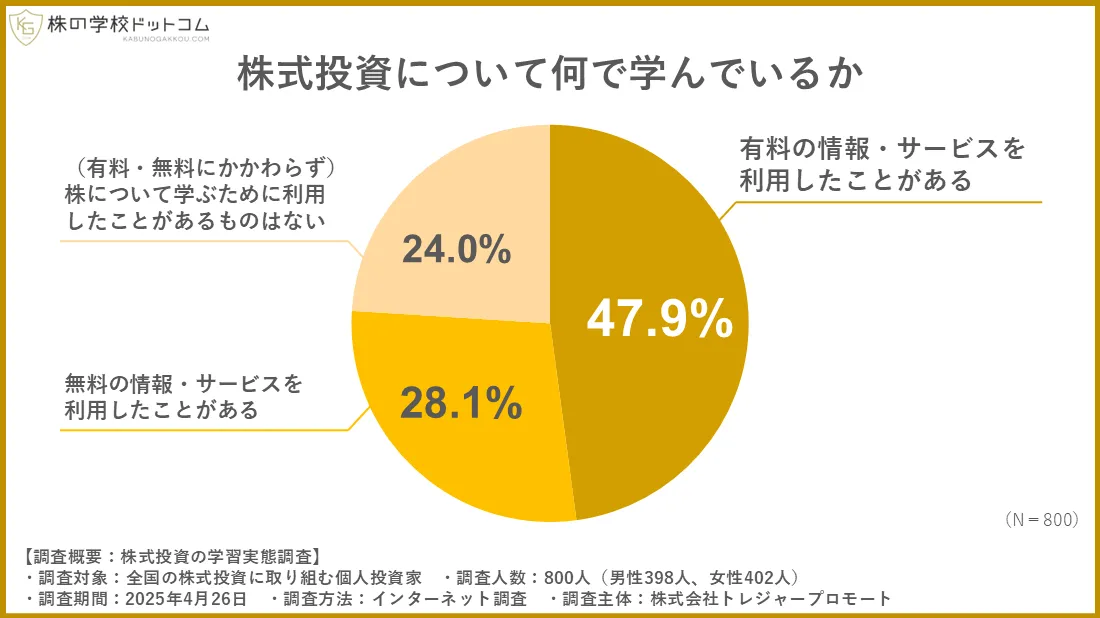
Half of Individual Investors Currently Use Paid Services for Stock Investment Learning
Insights from Recent Survey on Investor Education
A recent survey conducted by Kabunogakkou.com , an online stock school operated by Treasure Promote Inc., unveiled some intriguing insights into the learning habits of individual investors in Japan. Based on responses from 800 investors nationwide, the survey sheds light on how these individuals acquire knowledge for stock investments.
Key Findings
Approximately 47.9% of respondents reported utilizing paid resources such as newspapers, books, seminars, and schools to enhance their understanding of stock trading. In stark contrast, only 28.1% of the participants relied solely on free information and services. This data indicates a significant inclination among investors to invest in education, as those engaging in paid learning outnumber those relying on free options by roughly 1.7 times.
Interestingly, about 24.0% of the surveyed individuals confessed that they had not made any attempts to learn about stock trading prior to their investments. This reflects a worrying trend where a considerable portion of the investment community may be navigating the complex world of stocks without adequate preparation.
Popular Learning Resources
Among the 383 respondents who have used paid services, the Nihon Keizai Shimbun (Japan Economic Newspaper) was the most frequently utilized resource, with 54.8% indicating they had read it for stock investment education. Other popular resources included books (43.7%) and stock magazines (40.7%). On the other hand, only 30% had participated in one-off seminars, and a mere 8.6% engaged in continued schooling.
In terms of financial investment in education, 55.6% of individuals reported that they spent less than 100,000 yen (around $700) on learning tools. Meanwhile, some individuals, approximately 12.2%, admitted to spending over 500,000 yen, showcasing a varied commitment among investors in seeking educational resources.
Value Gained Through Learning
The survey also captured qualitative insights, revealing that investors found significant value in their learning experiences. A number of participants highlighted the skills they acquired that helped evade ill-timed investments:
- - One participant noted, "I learned the importance of setting rules for selling through a book, which helped me avoid unnecessary losses."
- - Another shared that an online seminar provided foundational methods that facilitated their first trades successfully.
- - Participants also reported gaining vital insights through platforms such as YouTube and webinars on trading techniques and market analysis.
Despite the availability of free resources, many participants who solely utilized these often shared valuable individual experiences from informal sources, such as blogs and conversations with friends.
Addressing Learning Gaps
While the data suggests that a significant portion of investors are serious about learning, the fact that one in four investors does not actively seek to educate themselves poses concerns in investment practices. It raises the question of whether individuals are entering the stock market impulsively, potentially leading to uncalculated risks.
Investment is inherently a self-responsible endeavor, where knowledge translates to better decision-making and risk management. Hence, the results underscore the critical need for investors to harness both paid and free educational resources to develop a comprehensive understanding of the market's dynamics.
Kabunogakkou.com is committed to empowering individuals to cultivate necessary skills and insights to confidently navigate stock investments. Their continuous efforts aim to provide effective learning frameworks that cater to diverse learning needs.
For more on Kabunogakkou, visit Kabunogakkou.
About Treasure Promote Inc.
Founded in 2005, Treasure Promote Inc. operates the Kabunogakkou online stock school intending to broaden access to investment education. By offering comprehensive courses led by seasoned traders, they have successfully attracted over 910,000 participants since the school's inception. The initiative further includes their Finance Education Institute, which focuses on enhancing financial literacy tailored to learners' life stages.
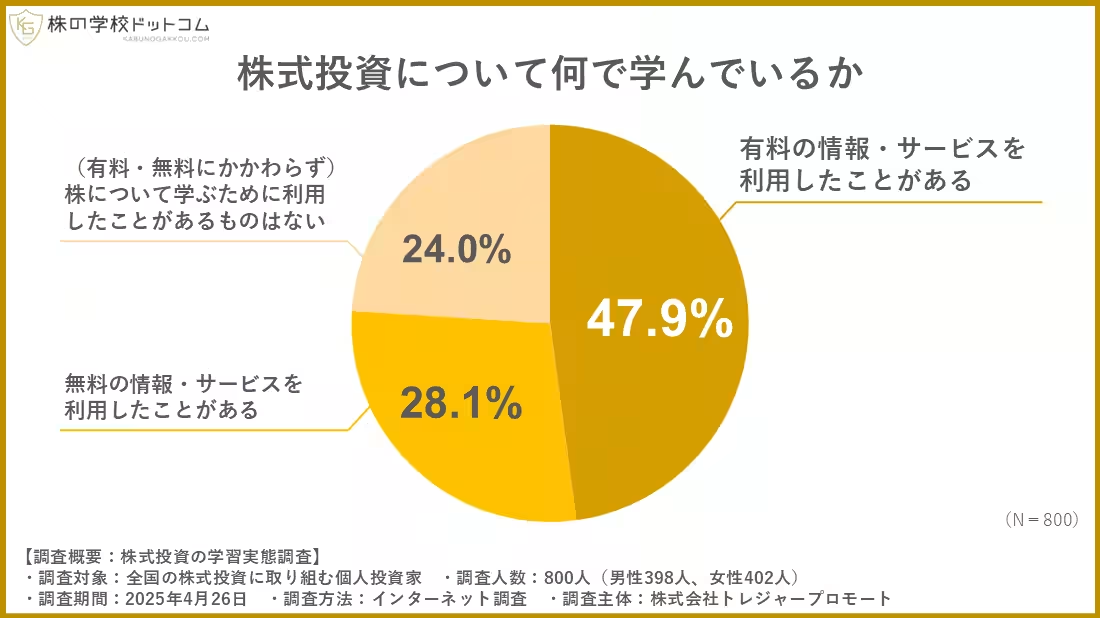
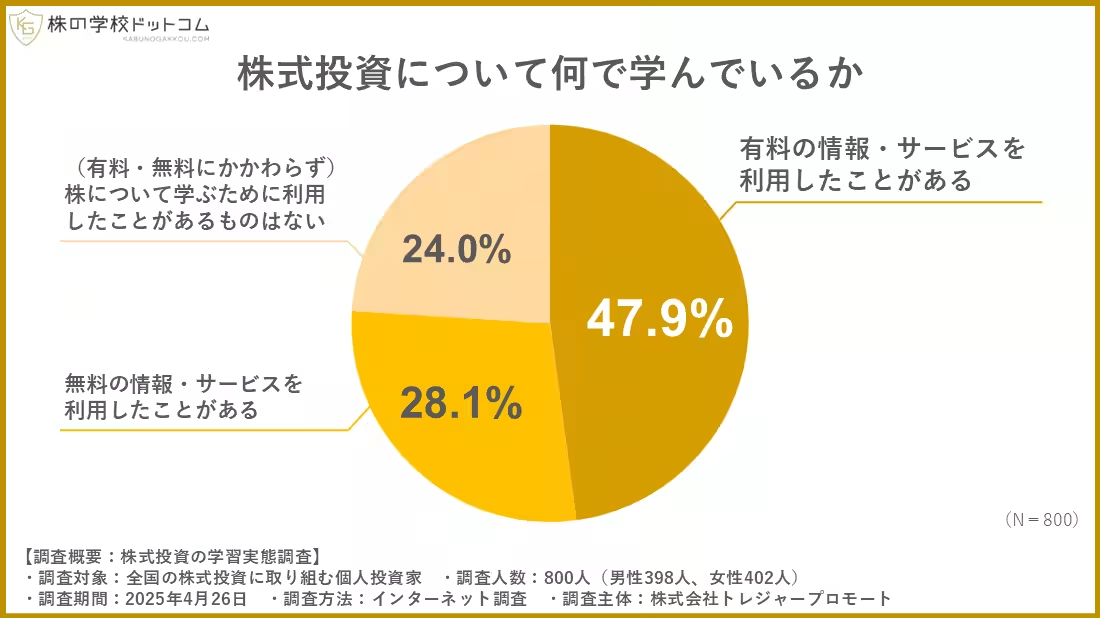
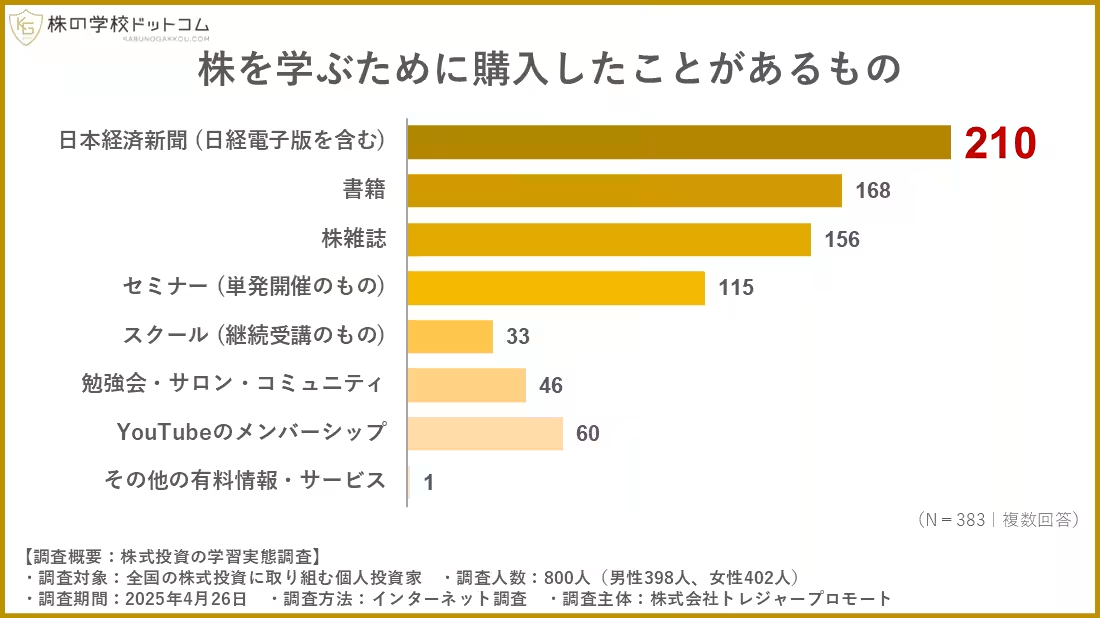
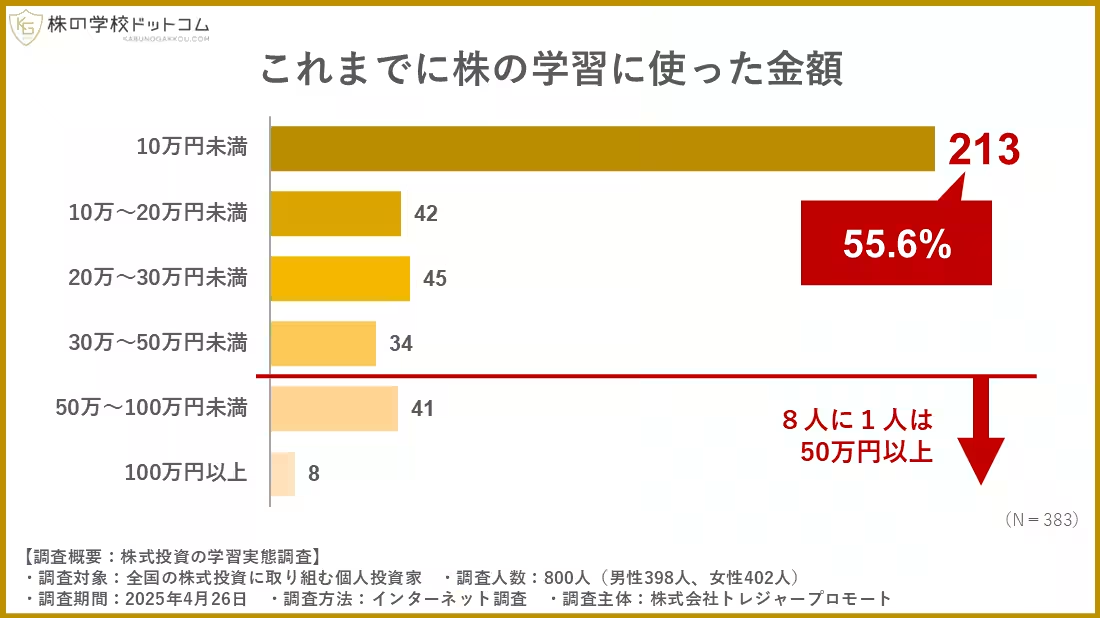
Topics Consumer Technology)










【About Using Articles】
You can freely use the title and article content by linking to the page where the article is posted.
※ Images cannot be used.
【About Links】
Links are free to use.